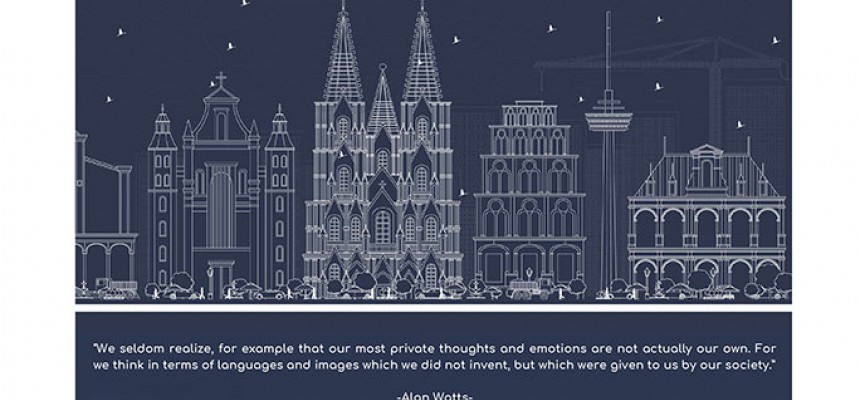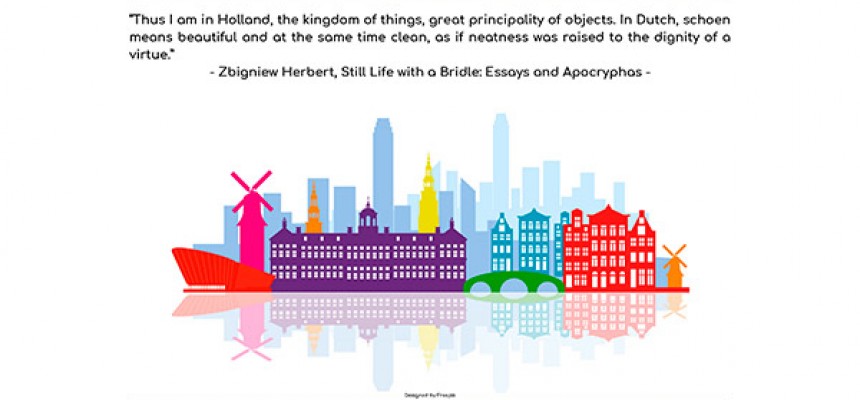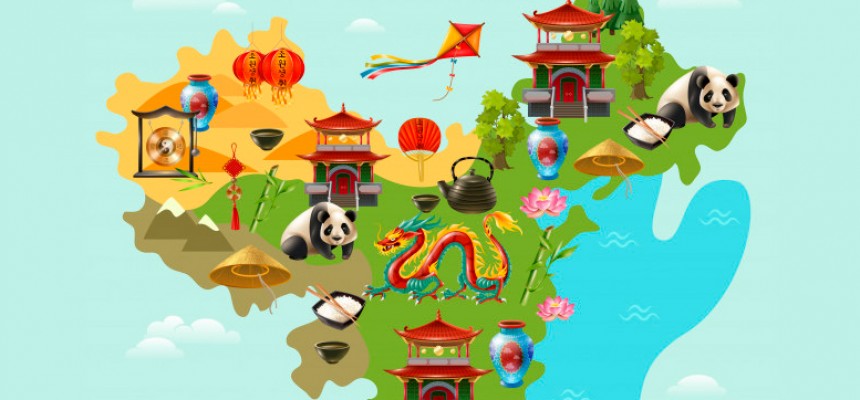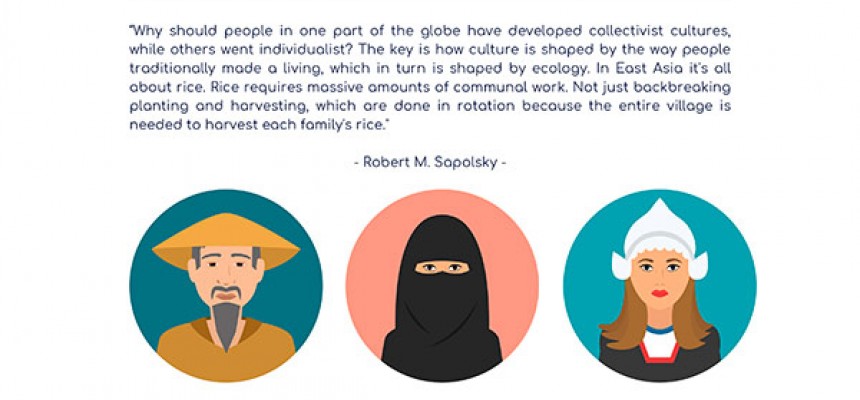Search Hierarchy -
25 search results: hierarchy
Business culture in the Germanic Europe cluster
The Germanic Europe cluster includes Germany, Austria, the Netherlands, and German speaking Switzerland (French and Italian speaking Switzerland are part of the Latin Europe cluster). Germanic societies are defined by: a low-context communication style; a monochronic approach to time management individualistic traits a doing orientation (Germanic cultures value productivity, efficiency, high-performance and competitiveness); a dislike for…
Category : Business culture around the world 19-10-2022 by Maria Antonietta Marino
Business culture in the Latin Europe cluster
The Latin Europe cluster includes France, Israel (considered by the Globe Project as part of this cluster because it was founded by Jewish people who migrated from Latin Europe to Eastern Europe to escape religious repression, but maintained their ties to Latin Europe over the centuries), Italy, Portugal, Spain, Switzerland…
Category : Business culture around the world 18-10-2022 by Maria Antonietta Marino
The challenges of cultural diversity in international business
Dear readers, Following the introductions to cultural dimensions and culture clusters, it is now time to discuss about business practices (and business etiquette) around the world. As briefly mentioned in the post about the Iceberg Model of Culture, some elements of culture are visible and easily accessible to everyone, while some other…
Category : Articles 31-05-2022 by Maria Antonietta Marino
The Concepts of Happiness and Well-being Across Cultures
"Happiness is dependent on unhappiness, while unhappiness is hidden in happiness." - Chinese proverb - *** What ideas, thoughts, and feelings do you associate with the word "happiness"? Have you ever considered the possibility that the definition of happiness might depend on one's cultural background? Today we're going back to the topic of individualistic…
Category : Articles 04-03-2021 by Maria Antonietta Marino
Forgiveness In Individualistic and Collectivist Cultures
Do not be concerned with the faults of other persons. Do not see others' faults with a hateful mind. There is an old saying that if you stop seeing others' faults, then naturally seniors and venerated and juniors are revered. Do not imitate others' faults; just cultivate virtue. Buddha prohibited…
Category : Articles 09-02-2021 by Maria Antonietta Marino
The cultural context in business communication, a cross country comparison
One of the most effective ways to learn about oneself is by taking seriously the cultures of others. It forces you to pay attention to those details of life which differentiate them from you - Edward T. Hall, The Silent Language - *** To continue with the topic of cross-cultural differences in outsourcing…
Category : Articles 03-02-2021 by Maria Antonietta Marino
Leadership styles across cultures, an overview
Go to the people. Live with them. Learn from them. Love them. Start with what they know. Build with what they have. But with the best leaders, when the work is done, the task accomplished, the people will say 'We have done this ourselves'. - Lao Tzu - *** In last week’s article…
Category : Articles 26-01-2021 by Maria Antonietta Marino
The impact of cultural differences on visual perception
A man is literally what he thinks, his character being the complete sum of all his thoughts. - James Allen, As a Man Thinketh - *** If you were asked which three items of these five best belong together, which ones would you choose, and why? If you chose three items that share similar…
The Germanic Europe Cluster
I remember learning German - so beautiful, so strange - at school in Australia on the other side of the earth. I liked the sticklebrick nature of it, building long supple words by putting short ones together. Things could be brought into being that had no name in English -…
Category : Introductions to culture clusters 04-08-2020 by Maria Antonietta Marino
Gift Giving Etiquette in the Confucian-Asia cluster: the luxury fruit culture
The manner of giving is worth more than the gift. - Pierre Corneille, Le Menteur - *** In a previous article we’ve discussed about the importance of guanxi in Chinese business: as explained by the author (Calipe Chong), guanxi - that literally translates as “relationships” - is to be intended as the “mechanism that provides…
Category : Articles 22-07-2020 by Maria Antonietta Marino
Crisis Management and the influence of cultural diversity on national responses to emergencies: an East v West comparison
Individuality and freedom are undoubtedly the greatest achievements of modern culture. . . . But we have fallen into the trap of individualism . . . and have lost sight of the relationships between the individual and the social system, between freedom and responsibility. . . . Our young adults—even…
Category : Articles 14-05-2020 by Maria Antonietta Marino
Global leadership and the differences between Indian and American culture
The single biggest problem in communication is the illusion that it has taken place. - George Bernard Shaw - *** Dear readers, in a previous article about the importance of cultural compatibility in outsourcing it’s been highlighted that the top locations for outsourcing deals are either Asian (Confucian Asia/Southern Asia) or Latin American countries,…
Category : Articles 18-03-2020 by Maria Antonietta Marino
The Southern Asia cluster
India lives in several centuries at the same time. - Arundhati Roy, Power Politics - After the Anglo- and the Confucian-Asia cluster, this series about effective global leadership continues with the Southern-Asia cluster. - How important is hierarchy in Indian business culture? - What does the Filipino concept of “Pakisisama” (a term that comes from…
Category : Introductions to culture clusters 04-03-2020 by Maria Antonietta Marino
The Confucian-Asia cluster
The superior man is modest in his speech, but exceeds in his actions. - Confucius - The shame-based Confucian-Asia cluster - that includes China, Japan, South Korea, Hong Kong, Singapore and Taiwan - is home to high-context, polychronic cultures, that prefer an indirect communication style (context is more important than words) and that see time as…
Category : Introductions to culture clusters 24-02-2020 by Maria Antonietta Marino
Social and business connections in China: an insider’s perspective on guanxi
Maria’s intro: The visitors who have been reading this blog over the past few months, by now might have a good understanding of what makes the “Eastern” and the “Western” approaches to business so different from each other. One of those factors - perhaps the most important one - is the concept…
Category : Articles 06-02-2020 by Calipe Chong
#AskMudita Current topic: Main cultural differences between Latin- and North America
Dear readers, This is an example of the messages I occasionally receive through the online form: “Dear Sir/Madam, I am writing to ask if you could please point me in the right direction. I am South American and have a hard time understanding certain personality traits Americans have, especially in the workplace.…
Category : Articles 23-01-2020 by Maria Antonietta Marino
II/II. National culture, international business strategy and common misunderstandings between the East and the West
It's dreadful what little things lead people to misunderstand each other. - L.M. Montgomery - In the previous article we’ve briefly explored the theory behind social connections, harmony, consensus in the Confucian-Asian cluster: relationships founded on the principles of Confucianism tend to be characterised by continuity and reciprocation, hierarchy and preservation of…
Category : Articles 15-01-2020 by Maria Antonietta Marino
I/II. Social connections, harmony, consensus: Confucian beliefs and business culture in China, Japan and Korea
Fundamentally, Japanese culture is based on rice farming. Rice farming requires a lot of water, and water must be shared evenly by everyone. Planting rice also required teams of people walking from row to row, as the same speed. And all of this has meant that uniqueness had to be…
Category : Articles 03-01-2020 by Maria Antonietta Marino
"Giving and losing "face": honour, social reputation and networking in Asian countries"
People will never forget how you made them feel. - Maya Angelou - While Maya Angelou’s quote is universal and likely to resonate with most people regardless of their cultural background, interactions between Westerners and members of Asian cultures may be negatively affected by the poor understanding of “face”, a concept relevant…
Category : Articles 27-12-2019 by Maria Antonietta Marino
II/II: "Why do we work so hard?”: Introduction to guilt- and shame cultures
A man must not be without shame, for the shame of being without shame is shamelessness indeed. - Mencius - There is a luxury in self-reproach. When we blame ourselves, we feel that no one else has a right to blame us. It is the confession, not the priest, that gives us…
Category : Articles 16-12-2019 by Maria Antonietta Marino
Food, values and entrepreneurship in diaspora communities
How a people eats is one of the most powerful ways they have to express, and preserve, their cultural identity...To make food choices more scientific is to empty them of their ethnic content and history (Michael Pollan - In Defense of Food: An Eater's Manifesto) What sort of information can we gather…
Category : Articles 06-11-2019 by Maria Antonietta Marino
Power dynamics in the workplace and the hidden costs of fearful communication
In her book “Controlling Other People: The impact of power in stereotyping”, researcher Susan Fiske claimed that “Secretaries know more about their bosses than vice-versa; graduate students know more about their advisors than vice-versa” : what happens when communication in the workplace is ruled by power dynamics and the voice of one…
Category : Articles 15-10-2019 by Maria Antonietta Marino
Global Sales and the Customer Journey: the effect of cultural values on individual choices
Are individual choices truly “individual” and an indication of our own personal preference? In a study conducted for Stannford University in 1999, 29 Asian and 27 European-American citizens recruited at the San Francisco International Airport were asked to fill in a short questionnaire and told that afterwards they would receive a…
Category : Articles 30-07-2019 by Maria Antonietta Marino
Power Distance
Nearly all men can stand adversity, but if you want to test a man's character, give him power. - Abraham Lincoln - "Power Distance ", one of Hofstede’s cultural dimensions, indicates the extent to which societies and organizations accept power inequality among their members. In societies characterized by a high index of…
Category : Introductions to cultural dimensions 17-09-2019 by Maria Antonietta Marino
Individualism-Collectivism
Why should people in one part of the globe have developed collectivist cultures, while others went individualist? The key is how culture is shaped by the way people traditionally made a living, which in turn is shaped by ecology. In East Asia it' s all about rice. Rice requires massive…
Category : Introductions to cultural dimensions 10-09-2019 by Maria Antonietta Marino


























